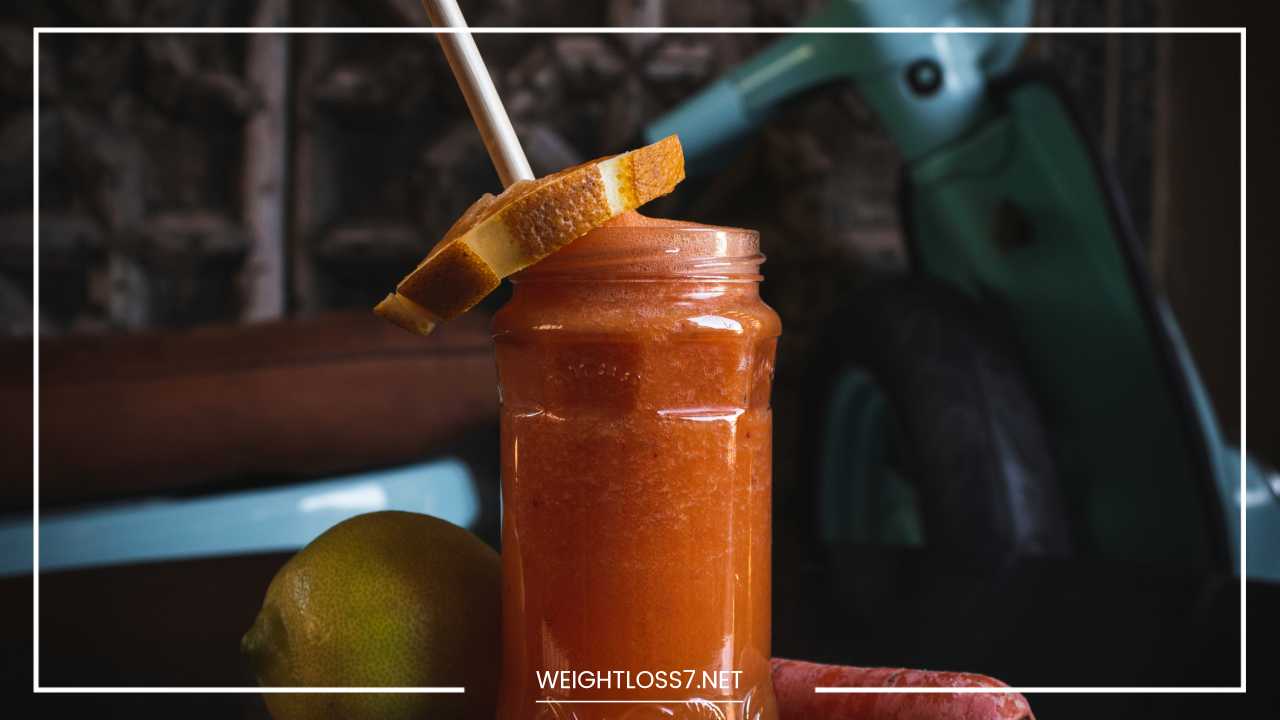Going on a Liquid Diet for Weight Loss

Liquid Diet
Sipping Your Way to Slim? A Deep Dive into Liquid Diets for Weight Loss
Liquid diets have captivated dieters for decades, promising a streamlined path to weight loss. The allure is undeniable: simply swap solid meals for shakes, smoothies, and broths, and watch the pounds melt away. But before you ditch your fork and embrace the straw, a closer look is essential.
This comprehensive guide delves into the world of liquid diets, exploring their effectiveness, potential downsides, and safe practices for those considering this approach.
The Liquid Diet Landscape: A Spectrum of Approaches
Liquid diets aren’t a monolithic category. They exist on a spectrum, with varying degrees of restrictiveness:
- Clear Liquid Diets: Often used medically before procedures, these diets allow only clear liquids like water, broths, and clear juices. They offer minimal nutrition and are not intended for long-term weight loss.
- Full Liquid Diets: These diets incorporate a wider range of liquids like puréed soups, milkshakes, smoothies, and yogurt drinks. They can provide some essential nutrients but may still lack in fiber and protein.
- Meal Replacement Diets: These commercially available plans typically involve pre-made shakes and soups designed to replace one or two meals daily. They offer a controlled calorie intake and often include essential vitamins and minerals.
- Juice Diets: Focused solely on fruit and vegetable juices, these diets can be high in sugar and low in protein and fiber. They are not recommended for long-term weight loss.
The Weight Loss Allure: Decoding the Science Behind Liquid Diets
The appeal of liquid diets lies in their potential for rapid weight loss. Here’s the science behind it:
- Calorie Restriction: Liquid diets typically restrict calorie intake significantly. When you consume fewer calories than your body burns, you enter a calorie deficit. Your body then taps into stored energy (fat) for fuel, leading to weight loss.
- Reduced Food Volume: Liquids are easier to digest than solid foods, and you may feel fuller for longer on smaller volumes. This can help curb your appetite and reduce overall calorie intake.
- Convenience Factor: Liquid diets can be convenient for busy schedules. Pre-made shakes and smoothies require minimal preparation and are easy to consume on the go.
The Short-Term Results: Do Liquid Diets Deliver?
Research suggests that liquid diets, particularly meal replacement plans, can lead to short-term weight loss . Studies have shown promising results, especially when combined with medical supervision. However, the long-term sustainability and overall health impact remain questionable.
Beyond the Scale: Unveiling the Downsides of Going Liquid
While the initial weight loss might be enticing, liquid diets come with a baggage of potential drawbacks:
- Nutrient Deficiencies: Solid foods offer a vast array of essential nutrients, including fiber, protein, healthy fats, and a spectrum of vitamins and minerals. Liquid diets often lack these crucial components, potentially leading to fatigue, muscle loss, constipation, weakened immunity, and other health issues.
- Muscle Loss: When your body doesn’t receive adequate protein, particularly during calorie restriction, it may start breaking down muscle tissue for energy. This can not only hinder weight loss efforts by reducing your metabolism but also negatively impact your overall strength and physical function.
- The Rebound Effect: The rapid weight loss associated with liquid diets is often unsustainable. Once you reintroduce solid foods, regaining weight is common, especially if you haven’t addressed underlying dietary habits and lifestyle factors that contributed to weight gain in the first place. This creates a yo-yo dieting pattern that can be demotivating and detrimental to your health.
- Psychological Challenges: Sticking to a restrictive liquid diet can be mentally challenging. You may experience cravings for solid foods, social isolation due to limited food options, and feelings of deprivation, which can negatively impact your relationship with food and lead to unhealthy eating habits in the long run.
- Potential Health Risks: For individuals with certain medical conditions, liquid diets can be risky. People with diabetes, kidney disease, or eating disorders should consult with a healthcare professional before considering a liquid diet.
Safer Shores: Navigating Liquid Diets with a Registered Dietitian
While strict liquid diets are not generally recommended, a registered dietitian can help you create a modified plan that incorporates liquids strategically for weight loss. This collaborative approach might involve:
- Strategic Meal Replacements: A dietitian can recommend incorporating one or two commercially produced, high-quality meal replacement shakes into your daily routine. These shakes are often formulated with adequate protein and essential nutrients to minimize deficiencies while helping you reduce overall calorie intake.
- Soup Power: Puréed vegetable soups can be a fantastic addition to a weight loss plan. They are packed with nutrients, low in calorie density and high in fiber, puréed soups can keep you feeling full and satisfied for longer, promoting healthy portion control. They also offer a wider variety of vitamins and minerals than many commercially available shakes.
-
Smoothie Savvy: Smoothies can be a delicious and nutritious way to incorporate fruits, vegetables, and protein powder into your diet. However, it’s crucial to be mindful of added sugars and opt for whole fruits over fruit juices. A dietitian can help you create balanced smoothie recipes that support your weight loss goals.
-
Liquid Snacks: Low-fat smoothies, vegetable juices diluted with water, or unsweetened nut milks can be a healthy and satisfying way to curb cravings between meals. They provide hydration and some essential nutrients while avoiding the excessive calorie intake of sugary snacks.
Remember: Consulting with a registered dietitian is crucial before embarking on any dietary changes, especially those involving significant liquid intake.
They can tailor a plan that addresses your individual needs, ensures you receive proper nutrition through a combination of liquids and solid foods, and sets you up for sustainable weight loss success.
Beyond the Diet: Building a Foundation for Lasting Success
Liquid diets can be a temporary solution, but lasting weight loss requires a more holistic approach. Here are some additional tips to consider:
- Embrace a Balanced Diet: This is the cornerstone of healthy weight management. Include plenty of fruits, vegetables, whole grains, and lean protein sources in your meals. Focus on whole, unprocessed foods as much as possible.
- Move Your Body: Regular physical activity is essential for weight loss and overall health. Aim for at least 150 minutes of moderate-intensity exercise per week, or a combination of moderate and vigorous activity. Find activities you enjoy, whether it’s brisk walking, swimming, dancing, or team sports. Exercise helps burn calories, build muscle, and boost your metabolism, all of which contribute to weight loss and weight management.
- Mindful Eating: Develop a mindful approach to eating. Pay attention to hunger and fullness cues. Eat slowly, savor your food, and avoid distractions while eating. This mindful approach can help you recognize when you’re truly hungry and stop eating when you’re comfortably full, preventing overeating.
- Portion Control: Practice healthy portion control techniques. Learn about appropriate serving sizes and use smaller plates to avoid overconsumption.
Developing a Sustainable Lifestyle
Ultimately, successful weight loss is about creating a sustainable lifestyle that supports your well-being. Here are some strategies to consider:
- Find Your WHY: Identify your motivation for losing weight. Is it for improved health, increased energy levels, or greater confidence? Having a clear purpose can help you stay focused and motivated throughout your journey.
- Set Realistic Goals: Don’t strive for overnight miracles. Set realistic and achievable goals that celebrate your progress. Aim for a gradual weight loss of 1-2 pounds per week.
- Make Gradual Changes: Don’t try to overhaul your entire lifestyle overnight. Introduce small, sustainable changes to your diet and exercise routine. These changes are more likely to stick in the long run.
- Celebrate Non-Scale Victories: Weight loss isn’t just about the number on the scale. Celebrate your non-scale victories, such as increased energy levels, improved stamina, or a better fitting pair of jeans. These victories can be powerful motivators to keep going.
- Seek Support: Don’t go it alone. Surround yourself with supportive friends and family who understand your goals and can encourage you along the way. Consider joining a weight loss support group or working with a weight loss coach.
Liquid Diets: A Historical Perspective
Liquid diets have been around for centuries, though their popularity has fluctuated throughout history. Here’s a glimpse into their past:
-
Ancient Greece: Hippocrates, the “father of medicine,” is credited with using clear liquid diets for short periods to cleanse the body and treat certain ailments.
-
Victorian Era: The rise of “fasting cures” in the 19th century saw the use of liquid diets for weight loss and various health conditions. However, these practices were often unregulated and potentially dangerous.
-
Mid-20th Century: The introduction of commercial weight loss shakes and meal replacement bars in the 1950s and 60s marked a shift towards a more convenient approach to liquid diets.
-
The 1970s and 80s: The popularity of fad diets, including juice cleanses and liquid protein diets, soared. However, concerns about nutrient deficiencies and potential health risks grew.
-
Modern Times: Today, liquid diets continue to be promoted, often with celebrity endorsements and aggressive marketing campaigns. However, there’s a growing emphasis on the importance of balanced nutrition and sustainable weight loss practices.
A Look at the Science: Evolving Research on Liquid Diets
Research on the effectiveness and safety of liquid diets is ongoing. Here’s a summary of key findings:
- Short-Term Weight Loss: Studies suggest that liquid diets can lead to rapid weight loss in the short term, especially when combined with medical supervision. However, the long-term efficacy remains debatable.
- Nutrient Deficiencies: Research highlights the potential for nutrient deficiencies associated with restrictive liquid diets, particularly those lacking in protein, fiber, and essential vitamins and minerals.
- Muscle Loss: Studies show that liquid diets, due to their low protein content, can lead to muscle loss, which can negatively impact metabolism and overall health.
- Psychological Impact: Research suggests that the restrictive nature of liquid diets can be challenging to maintain mentally, leading to cravings, social isolation, and a negative relationship with food.
Emerging Trends: The Future of Liquid Diets
As research continues, we can expect to see some evolving trends in the world of liquid diets:
- Personalized Liquid Diets: The future may involve more customized liquid diet plans, incorporating a wider range of nutrient-rich options like protein shakes, puréed soups, and fortified broths, tailored to individual needs and preferences.
- Focus on Nutrient Content: A growing emphasis on ensuring adequate protein, fiber, and essential vitamins and minerals in liquid meal replacements is likely.
- Integration with Healthy Habits: Liquid diets may be seen as a temporary supplement to a sustainable weight loss plan that emphasizes a balanced diet, regular physical activity, and healthy lifestyle changes.
Final Word
Liquid diets offer a tempting shortcut for weight loss, but they come with significant limitations. While they may have a place in a medically supervised setting for short periods, they are not a long-term solution for most individuals.
Building a sustainable weight loss plan that focuses on healthy eating habits, regular exercise, and a supportive lifestyle is key to achieving and maintaining your weight loss goals.
By making informed choices and prioritizing your overall well-being, you can embark on a healthy and sustainable journey towards a healthier you.

















